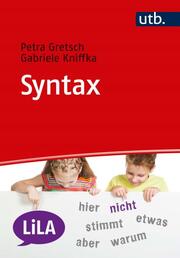Inheritance and Innovation in a Colonial Language (E-Book, PDF)
Inheritance and Innovation in a Colonial Language
eBook - Towards a Usage-Based Account of French Guianese Creole
Bibliographische Informationen
Format: Digitale Rechteverwaltung: Digitales Wasserzeichen
Beschreibung
Autorenportrait
William Jennings is Senior Lecturer in French language, linguistics and culture at the University of Waikato, New Zealand. His research interests lie primarily within French colonial and encounter history, with a particular focus on the emergence of creole languages and societies.
Stefan Pfänder is Full Professor of Romance linguistics at Albert-Ludwigs-Universitäts Freiburg, Germany. His teaching focuses on French, Spanish, Italian and Creole, while his research centres around the emergence of grammatical constructions in interaction, and usage-based models of language variation and change.
Inhalt
Chapter 1. Introduction: A dual approach.- Chapter 2. History: The Creation of French Guianese Creole.- Chapter 3. Linguistics: Inheritance and Innovation in French Guianese Creole.- Chapter 4. Conclusion.
E-Book Informationen
„eBooks“ sind digitale Bücher. Um eBooks lesen zu können, wird entweder eine spezielle Software für Computer, Tablets und Smartphones oder ein eBook-Reader benötigt. Da es eBooks in unterschieldichen Formaten gibt, gilt es, folgendes zu beachten.
Von uns werden digitale Bücher in drei Formaten ausgeliefert. Die Formate sind EPUB mit DRM (Digital Rights Management), EPUB ohne DRM und PDF. Bei den Formaten PDF und EPUB ohne DRM müssen Sie lediglich prüfen, ob Ihr eBook-Reader kompatibel ist. Wenn ein Format mit DRM genutzt wird, besteht zusätzlich die Notwendigkeit, dass Sie einen kostenlosen Adobe® Digital Editions Account besitzen. Wenn Sie ein eBook, das Adobe® Digital Editions benötigt, herunterladen, erhalten Sie eine ASCM-Datei, die zu Digital Editions hinzugefügt und mit Ihrem Account verknüpft werden muss. Einige eBook-Reader (zum Beispiel PocketBook Touch) unterstützen auch das direkte Eingeben der Login-Daten des Adobe Accounts – somit können diese ASCM-Dateien direkt auf das betreffende Gerät kopiert werden.
Da eBooks nur für eine begrenzte Zeit – in der Regel 6 Monate – herunterladbar sind, sollten Sie stets eine Sicherheitskopie auf einem Dauerspeicher (Festplatte, USB-Stick oder CD) anlegen. Außerdem ist die Anzahl der Downloads auf maximal 5 begrenzt.
Weitere Artikel aus der Kategorie "Allgemeine und Vergleichende Sprachwissenschaft"
Neuerscheinung

Neuerscheinung

Lieferbar innerhalb 24 Stunden

Lieferbar innerhalb ca. einer Woche






